Curriculum
Curriculum
1) Epidemiology
a. Asthma
b. Allergy
c. COPD
2) Basic Sciences
a. Basics of Allergy
b. Upper Airway Anatomy & Physiology
c. Lower Airway Anatomy & Physiology
d. Respiratory physiology
e. United airway disease hypothesis
f. Aerosols and aerosol delivery systems (demonstration)
g. Pharmacotherapy of rhinitis, conjunctivitis and asthma
h. Review of common drugs prescribed by the allergist
3) Clinical Research & Biostatistics
a. Introduction to biostatistics
b. Understanding clinical trial designs
c. How to read a research paper
d. Effective journal club presentation
4) Principles of Immunology
a. Basics of immunology I (innate immunity)
b. Basics of immunology II (adaptive immunity)
c. Immediate and delayed hypersensitivity reactions
d. Primary immunodeficiencies – Part 1
e. Primary immunodeficiencies – Part 2
f. Vaccine immunology and adverse events
5) Clinical Application
a. Doctor-Patient relationship
b. Approach to an allergic patient: History & PE
c. Practical approach to patients with frequent infections
d. Interpreting spirometry according to ERS/ATS criteria
e. Spirometry interpretation exercises
f. Clinical interpretation of SPT
g. Prescription writing case scenarios
h. Integrated Approach to Allergy/Asthma
6) Investigations and practical sessions
a. In-vitro laboratory tests for the diagnosis of allergy
b. Skin testing demonstration (practical)
c. Spirometry (theory)
d. Spirometry (practical)
e. Upper and lower airway radiology for the allergist
f. Rhinoscopy and Bronchoscopy demonstration
g. Role of FENO measurement in asthma
h. FeNO measurement and clinical utility
i. Workshop on all inhale devices
- Bronchoscopy test
- Impulse Oscillometry – workshop
- Basic life support – workshop
j. Bronchoprovocation Test Practical
k. Impulse Oscillometry
l. Impulse Oscillometry demonstration
m. Life support workshop
7) Allergen Immunotherapy
a. Allergen immunotherapy (theory)
b. Evidence for AIT in asthma
c. Allergen immunotherapy prescription writing
d. Practical Demonstration
8) Ear, Nose and Throat - - Allergy
a. Allergic and nonallergic rhinitis
b. Chronic sinusitis/nasal polyps
c. Eustachian tube dysfunction, acute and chronic otitis
9) Asthma
a. Introduction to asthma
b. Asthma pathogenesis
c. Asthma management according to GINA guidelines
d. SMART therapy for asthma
e. Evaluation and treatment of acute asthma
f. Asthma prescription writing
g. Asthma-COPD overlap (ACO)
h. Mimics of Asthma and COPD
i. Mimickers of asthma: ILD
j. Mimickers of asthma: TB
k. Mimickers of asthma: OSA
l. Mimicker of asthma: ABPA and HSP
m. Monitoring asthma control
n. Biologic therapies for severe asthma
o. Asthma phenotypes
p. Asthma: Special situations (Pregnancy, elderly, post Op)/ EIB/ natural asthma
q. Advances in asthma management
r. GINA 2025 guidelines
10) Pediatric Asthma
a. Pediatric asthma
b. Wheeze in the less than 5 age group
c. Management of acute asthma in children
d. Long term management of asthma in older children
e. GINA 2025 guidelines
11) Occupational Asthma
12) Anaphylaxis
- Mechanism
- diagnosis and management
13) Food Allergy
- Introduction to food allergies
- Food allergy (part I, II, III)
14) Drug Allergy
15) Dermatology
a. Contact dermatitis
b. Urticaria and angioedema
c. Atopic dermatitis
16) Ophthalmology
Allergic disorders of the eye
17) Hymenoptera Venom allergy
18) Aerobiology
a. Introduction to aerobiology
b. Pollen walks
c. Slide set up & pollen identification
19) Environment and Pollution
a. Environmental control measures
b. Pollution and allergies
20) COPD
a. Non Smoking COPD
b. Nicotine Dependence & Tobacco Smoke
c. 2025 GOLD guidelines for COPD
d. New frontiers in the treatment of COPD
21) Miscellaneous Topics
b. Management for the allergist
b. Setting up Allergy Asthma Practice : INDIA
c. Eosinophilic lung diseases
d. Eosinophilic esophagitis
e. Latex allergy
